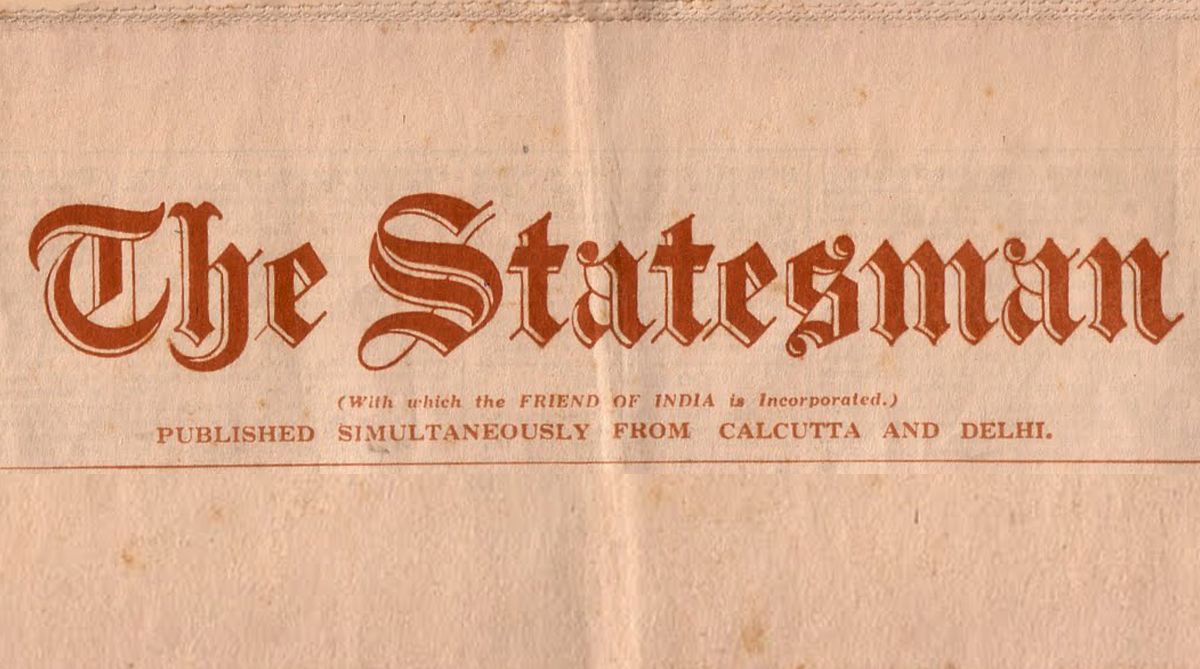A New Day, A New Dawn
There is a surprise for the readers. A special Poila Boishakh gift from none other than West Bengal chief minister Mamata Banerjee. Who has written a piece for this special edition.
On this day a century ago, these were some of the news items The Statesman readers got to read about India and the world.

OCCASIONAL NOTE
In the new number of the Calcutta Review Colonel Mulvany has an interesting article in which he describes the earliest of the steps by which the Indian jails ceased, some thirty years ago at least, to deserve Sir Subramaniya Iyer’s description of them as “so filthy that often the inmates die from loathsome diseased.”
The Howard of Indian prison reform was Surgeon James Hutchinson, whose exposure in 1835 of the jail abuses in his work on the “General and Medical Management of Indian Jails” may have inspired Macaulay’s characteristic minute and certainly hastened the appointment of the Committee on Prison Discipline of that year.
Advertisement
Hardly less worthy of honour than Hutchinson was Dr. Joseph Ewart of the Bengal Medical Service, who returned to the charge in 1860 after a quarter of a century had elapsed with little or nothing done.
How awful the condition of affairs once was may be gleaned from the general jail death-rate of 72.5 per thousand as late as 1853-54 and the fearful record in a single year, 1829, of a particular jail, more than a quarter of whose inmates died in twelve months.
How far India has travelled since the eighties, when the tide definitely turned, can be seen by contrasting records such as these with the general death-rate for all the Bengal prisons of 15.8 per thousand in 1917 and, in the case of Alipore alone, of 11.7 per thousand.
ASIATIC SOCIETY
Amongst the communications submitted to the monthly meeting of the Asiatic Society of Bengal on Wednesday, was a note on the vitality and longevity of silkworm moths during the cold and rainy seasons in Bengal, by Maude L. Cleghorn.
This paper contained an account of experiments carried out during the past two years on the vitality and longevity of silkworm moths. It was shown that moths which emerge in December and January live longer, while those bred in the rains and hatched out in August and September exist for only a few days.
The results of the experiments, which were shown in tabular form, were compared with Tower’s observations on the effect of temperature and moisture on certain Chrysomelid beetles.
Another paper on “Dacca Diaries,” by J.T. Rankin, contained the first two instalments of notes and extracts from two volumes of a Dacca diary.
The first instalment covered the period 1669 to 1682, and the second instalment dealt with the period 1688 to 1691. A historical retrospect of the English settlement in Bengal, and its gradual development, constituted the preliminary part of this instalment.
BOMBAY COTTON EXCHANGE
It has been brought to the notice of the directors of the Bombay Cotton Exchange that a misapprehension prevails in the minds of some of the members and associates as to the effect of Rule 3 of the bye-laws, which formed the subject of discussion in some litigation in the High Court of Bombay.
A section of the trade appears to be erroneously of opinion that the directors’ function under the rule is merely to register the rates at which transactions of sale and purchase have been entered into by some contracting parties for special purposes of their own, and this erroneous impression has led at times to operations which have proved disastrous not only to the parties concerned but to the trade at large.
In order, therefore, to prevent the mischief induced by this erroneous impression, the directors wish to direct the attention of members and associates, and the trade generally, to the said rule, and to impress on them that under this rule the directors are not merely a registering machine to record the rates at which buyers and sellers of cotton choose to carry on their operations.
PROHIBITED SPEECHES
The cases of Mr. Asaf Ali and Pundit Neki Ram were resumed before Mr. Spence, Additional District Magistrate, on Tuesday. Mr. Davar, counsel for the defence, asked for the postponement of the case as he had not received from the Government of India any reply regarding the petition for transfer.
The Magistrate declined to postpone the case and directed the trial to proceed. Written statements by Mr. Asaf Ali and Pundit Neki Ram were handed to the court, both declaring that they did not disobey the Chief Commissioner’s order under the Defence of India Act.
Mr. Davar argued the point whether a meeting of the Home Rule League was a public meeting. A meeting of a body, whether social, political, or domestic, held with a view to promote certain specific interests, could not be called a public meeting. The Defence of India Act did not define a public meeting. The case was adjourned to the 15th instant.
Advertisement